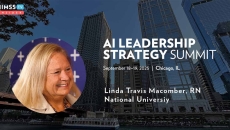Analytics
According to Dr. R. Ryan Sadeghian, healthcare AI thrives best on small, steady successes in areas like ambient documentation where clinician trust and workflow fit matter more than having the latest model.
About 300 million prescription records were used to train the AI to reveal drug safety issues and opportunities for repurposing medicines.
The company offers computer vision technology that enables humanoids and robots to perceive the world in 3D similar to how humans use their eyes and depth perception.
As post-acute facilities struggle with fragmentation and staffing, PointClickCare's Dr. Steve Buslovich says AI tools can summarize complex patient records and assist with documentation so clinicians can focus on bedside care.
Developed with Murdoch Children's Research Institute, the AI has shown 90% detection accuracy.
The deep multi-task learning AI analyses X-ray images of premature babies to identify intestinal perforation and its location.
The acquisition expands Datavant's capabilities to help insurance and legal professionals with AI-enabled tools for automated medical record review and predictive analytics.
HIMSS Life Fellow and National University professor Linda Travis Macomber, RN, talks about her career in AI and how data continuity, AI-powered decision support and virtual care can drive the next wave of healthcare transformation.
A diagnostic AI developed at Asan Medical Center has been shown to analyse medical images while protecting privacy.
Developed at the University of South Australia, it could help doctors safely deprescribe obsolete medications.







